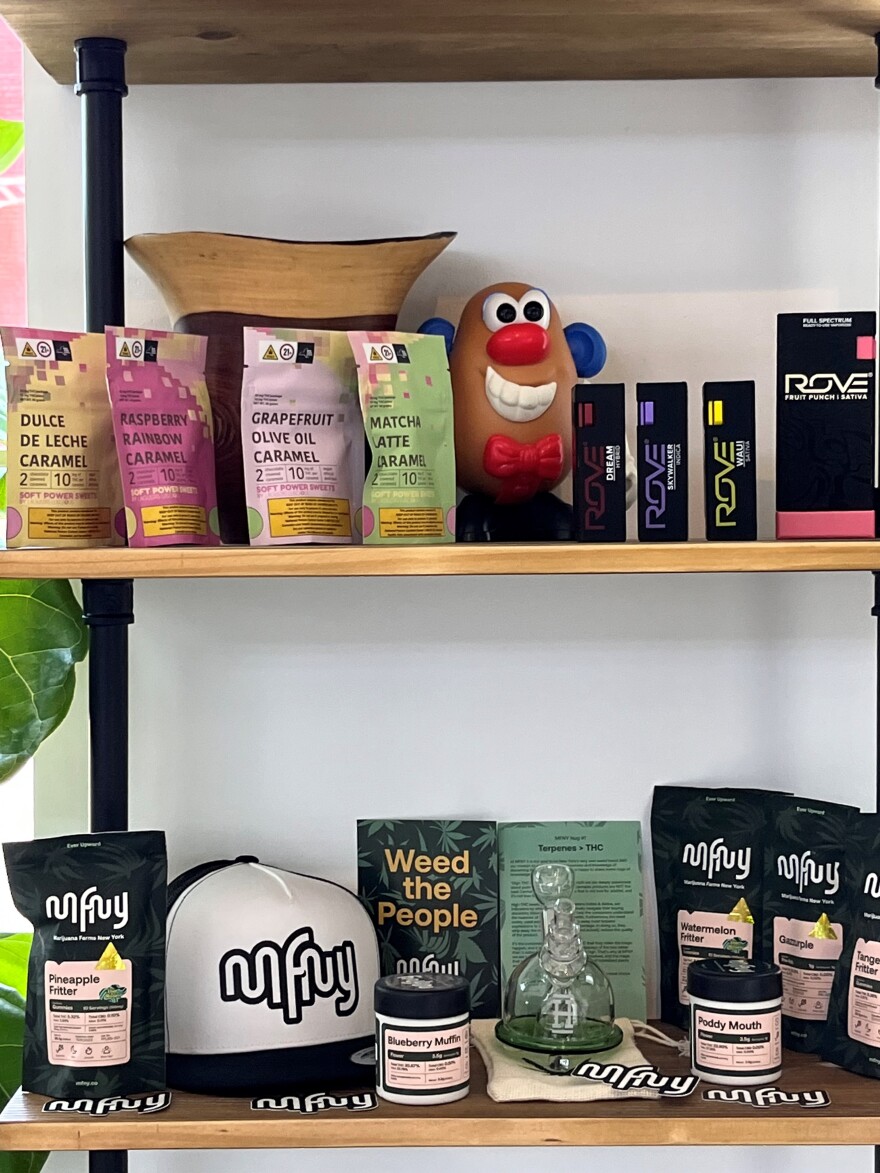The Schenectady County town of Glenville continues to be cautious when it comes to allowing recreational cannabis sales.
Delays that have seen New York state's fledgling legalized cannabis industry occasionally sputter and stall haven't gone unnoticed by Glenville Supervisor Chris Koetzle, who says the town has taken a long, hard look at permitting sales of marijuana and moved slowly.
“I think the flaw, though, is that the state has kind of, you know, made it that once you're in, you're in forever," said Koetzle. "And so that that first step is kind of a difficult step to make sure you're doing it right. Because you don't want to be stuck in something that wasn't done correctly.”
Back in 2021 Koetzle supported a town decision to opt out of recreational cannabis sales, noting at the time Glenville could always opt back in at a future date.
The Republican cites the city of Schenectady's experience with retail cannabis as an example of why location must be scrutinized carefully before giving anyone permission to open a shop in town. Speaking during a June primary debate, Democratic Mayor Gary McCarthy expressed second thoughts about the placement of Upstate Canna Co on upper Union Street, which in March became the first dispensary to open in the Capital Region.
"We'd been hopeful that it would go to a couple other locations in the city of Schenectady either in downtown or at Mohawk Harbor, there was not the level of engagement that I had hoped for, with the operator with the Office of Cannabis Management, with the police department and other city services in putting that in place," said McCarthy. "And as a result of that it's created a little angst with some of the businesses on upper Union Street.”
Debating McCarthy weeks before losing the primary, City Council President Marion Porterfield agreed the location turned out to be a poor choice.
"And we are getting complaints because it's situated near a studio where children go and where families feel uncomfortable walking through is what the feedback that I'm getting. So when we waited in up and did our zoning first and then opted in, then we would be in a better place," Porterfield said.
Koetzle sees a yellow light after Schenectady's experience and a history of mixed signals and delays at state level.
"Glenville has taken kind of a long look at this and wanted to go very slowly with it because it is so new," Koetzle said. "And it seems as though the state is changing regulations and what you can and can't do, almost, you know, as we're, as we're deciding on opening dispensary. So we kind of watched what happened in Schenectady. And, you know, listening to the mayor and council president talk publicly about the mistakes they made, and not having the location that they wanted in the end, made us really kind of hit the pause button again, and say, let's make sure we're doing this right. And that's where I think the town board has finally landed and say, 'let's take some time on this and not get this done. You know, this year.' Our plan was to have a public hearing, sometime in July or August. But I think you're gonna see this more of a 2024 proposal as it goes forward."
Koetzle notes an initiative to build a new medical marijuana cultivation and production facility in the town back in 2017, shortly after New York’s medical medical marijuana law took effect, failed to launch.
"They were approved. But my understanding was that market has kind of gotten difficult because the state took so long to roll out regulations that most of them, most of the growers and cultivators have pulled out. And that one never opened," said Koetzle.
Koetzle blames the slow rollout and changing regulations for putting the brakes on cannabis for the time being: he suggests the Route 5 corridor from Scotia to Amsterdam would be a more suitable location for a retail cannabis shop.




